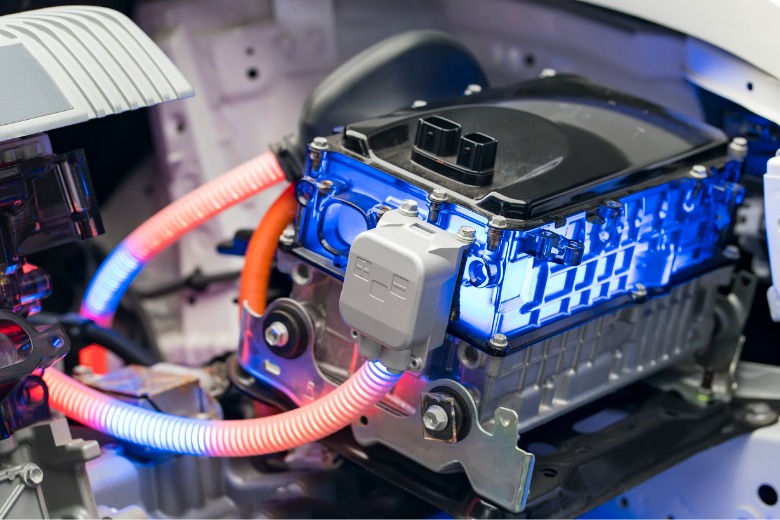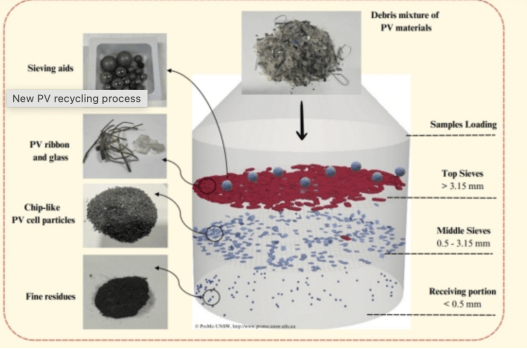
Lithium batteries could be banned from landfill in NSW, the state’s Environmental Protection Agency says.
It comes as the state faces a mounting pile of dangerous waste created as a by-product of the quest for renewable energy.

Lithium batteries and solar panels are among the emerging waste streams that will have to be dealt with in coming years, the Australasian Waste and Recycling Summit heard last week.
An increase in EVs and grid-connected batteries, as well as large storage systems associated with photovoltaic systems is contributing to the problem, EPA leader of regulatory policy, initiatives and advice Nancy Chan said.
“These trends will eventually lead to high levels of battery waste, although as yet lithium ion batteries are not being recycled at scale globally,” she said in a keynote address on Wednesday.
There are also inadequate collection points across Australia for used lithium batteries, which can cause fires in waste collection vehicles and landfill sites.
“We’re looking at having them reclassified in NSW as hazardous waste which would ban them from landfill,” Ms Chan said.
“We’ve developed an education campaign we expect this to run shortly.”
The Victorian government banned all e-waste, including all batteries, from landfill in 2019.
Solar waste set to increase
Many older solar panels are also approaching the end of their 20-year lifespan, the conference heard.
It’s forecast that as soon as 2025, NSW will generate up to 10,000 tonnes of waste from solar PV panels a year, and this will increase year on year from 2035, Ms Chan said.
It’s a concern councils are acutely aware of, with local government leaders arguing at their Annual General Assembly in June that they don’t have the facilitites to deal with it.
“Our concern is LGA’s will not be able to safely handle influx of hazardous materials from solar panels. This will then encourage community to illegally dump – leading to pollution and contamination of the environment,” a motion passed by delegates said.
The motion called on the federal government to advocate for a solution to the disposal of solar panels including reclamation, recycling, and implementation of a levy mechanism.
Researchers study recycling
Up to 95 per cent of the materials that are used to make a solar panel can be recycled, including silicon, aluminium and silver, however extracting them can be costly and difficult.
But now researchers from NSW say they have developed a patented sieving process which makes it easier to separate and extract materials.
A team led by Professor Yansong Shen this month announced the process, which they say offers effective separation of 99 per cent of PV cell particles.
“The key to our new process is the addition of the sieving aids which help to crush the solar cells into smaller particles allowing a better separation of all the components,” Professor Shen says.
“That makes it much easier to recover important elements such as the silver contained in the solar cells.”

Dr Richard Corkish from the Australian Centre for Advanced Photovoltaics, based at UNSW Sydney’s School of Photovoltaics and Renewable Energy Engineering, says the principle of ‘reduce, reuse and recycle’ must also apply to solar.
“The industry standard for most solar panels’ lifespan is 25 to 30 years which means solar systems installed more than 15 years ago will soon be approaching their end-of-life,” he says.
“Additionally, in the last decade, we’re seeing a growing trend of replacing PV modules even though they are in perfect working condition. A lot of people installed small expensive systems some years ago but rather than adding on to them, they’ve been convinced to replace them altogether.”
The management and disposal of PV modules varies between each state and territory.
Victoria is the only state to have officially banned solar panels from ending up in landfill, and Queenslanders will soon be banned from dumping them in landfill under a proposed expansion to the state’s recycling program.
The federal government has also signalled it will add PV modules to the Product Stewardship Scheme along with other items like car tyres and plastic bottles.
Comment below to have your say on this story.
If you have a news story or tip-off, get in touch at editorial@governmentnews.com.au.
Sign up to the Government News newsletter
The total cost of ownership of these technologies is from mining, through production, through the lifetime of the product and with the disposal and recycling of the product. The cost and waste due to solar and EV cars with lithium is immeasurable. We need new battery technology that is not so intensive to manufacture and not ‘toxic’ to recycle. Others might put to landfill somewhere else in the world for a fee, which does not really solve the problem.
Government has a responsibility to organize proper recycling if they are promoting the use of any product, it is easy to ban this and that so it should be just as easy to recycle unless the government has not studied the problem in the first place. Not an unusual situation!